Bachelor of Nutrition and Food Sciences
Degree Level Undergraduate
Year 2025
You're considered an International student if you are:
Degree Level Undergraduate
Year 2025
Program Code
IBNF
Prerequisites
None
Assumed Knowledge
None
Fees
AUD$ 40,900 per annum (per 1.0 EFTSL) for students enrolled in 2025
Admissions
Student Profile
International Admission by Country
See full entry requirements
CRICOS Code
036238C
The admission criteria have been grouped to assist you to easily find the information most relevant to your circumstances. However, you may fit into more than one and the university will consider applicants against each of the relevant criteria.
Certain conditions apply. For more information refer to Appendix 4 of the University's Selection and Entry policy.
Applicants are required to meet one of the following criteria with a competitive result, and demonstrate that they fulfil any prerequisite requirements and essential requirements for admission:
Recent secondary education
Meet any prerequisite requirements with a minimum grade of C- or equivalent
AND
Applicants who have not achieved the Selection Rank required for automatic selection may be selected for any remaining places based on the grades of their year 12 subjects.
OR
Higher education study
OR
Vocational Education and Training (VET)
OR
Work and life experience
| Nepal NEB | 2.61 |
| Bangladesh HSC | 4 |
| Canada High School (OSSD) | 65 |
| Eynesbury FSP | 330 |
| German Abitur | 3.5 |
| Kenya KCSE (average) | B+ |
| Malaysia STPM (best 3) | 6 |
| Malaysia UEC | 30 |
| Norway GPA | 3 |
| Pakistan HSSC | 85 |
| Sri Lanka A Levels (best 3) | 7 |
| Sweden GPA | 13 |
| UK Board GCE A Levels/HK Board | 7 |
| Vietnam | 7.5 |
| Australia | 72 |
| IB (best 6) | 26 |
| USA SAT (1600) | 1110 |
| India (best 4) State Board | 75 |
| India (best 4) Central Board | 65 |
| HKDSE | 15 |
Students commencing in July will require additional time to complete the degree due to course scheduling and degree structure. Students may be limited to studying at a maximum of 75% of the required courses per semester in their first two years. SP5 intake is not available for international students.
1ComparED (QILT) Graduate Outcomes Survey 2021-23– Full-time Employment Indicator (Domestic Undergraduate). SA public universities. 22018 Excellence in Research for Australia (ERA). 3Ranked #43, 2024 THE Young University Rankings.

Start your unstoppable career in the health and food industry, where you can drive innovation and change in sustainable food product development, and community health.
You can become actively involved in promoting and managing diets and lifestyles, conducting research for enhanced wellbeing, developing innovative and sustainable foods, and more. You'll graduate ready to make an immediate impact on healthy eating habits across the greater community.
You can also grow your knowledge and increase your career opportunities by studying for a double degree in the complimentary fields of Human Movement or Exercise and Sport Science.
Nutrition and food science experts require an enthusiasm for food and its effect on health. You should also possess a variety of personal skills such as problem-solving, creative thinking and the ability to work independently as well as collaboratively.
Students who undertake activities where interaction with patients/the public is required for their degree, such as field or clinical placements/visits and in University clinics and gyms, must demonstrate they meet mandatory pre-placement conditional requirements. These include criminal history clearance, child related employment clearance and immunisation requirements.
Please visit the Clinical Placement Unit for information on key requirements, and to access the full student checklists.

This unique degree offers practice-based and theoretical learning to ensure you’re primed for a healthy career.
During the first two years you’ll explore both nutrition and food science topics, gaining a strong understanding of the key elements of each. You’ll complete group work and research on topics, including innovative and environmentally sustainable food practice, in the sensory lab. You’ll get to analyse micro-organisms and explore key topics like food contamination in the microbiology lab.
Your knowledge will be developed in:
In your third year you’ll specialise in either a nutrition or food science stream.
If you choose nutrition, you’ll get to develop:
If you choose food science, you’ll focus on:
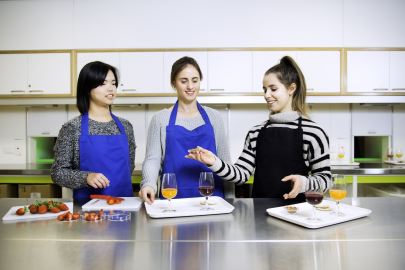
The growing awareness of nutrition and food quality and their influence on human wellbeing requires highly competent and skilled graduates. At UniSA, you'll develop your knowledge and skills in the scientific basis of food and nutrition, and will graduate ready to work as part of multidisciplinary teams in a range of health and industry settings.
Throughout your studies, you’ll learn from award-winning academics and industry experts from a curriculum informed by well above world-class research in nutrition and dietetics.1
You’ll also learn in UniSA’s on-campus state-of-the-art facilities. Practice your skills in our dedicated nutrition and food science hub, which is home to a $1 million commercial kitchen, sensory laboratory (one of only a few in Australia) and microbiology laboratory.
The commercial kitchen is where interactive food preparation and cooking activities take place. Get involved in cheese making, plant-based substitutes for meat, adapting recipes to make them nutritionally sound for different life stages, texture modification of foods for the elderly, designing food quality assurance plans (in line with Hazard Analysis and Critical Control Points) and food and beverage fermentation.
Graduates are eligible to apply for professional membership with the Australian Institute of Food Science and Technology (AIFST), can start their registration pathway towards becoming a Registered Nutritionist (RNutr) with the Nutrition Society of Australia.
12018 Excellence in Research for Australia (ERA)
Nutrition is high on Australia’s health and wellness agenda. In Australia, the nutrition profession is expected to grow over the next five years.1 Through scientific advancements in food and nutrition, your future career can have a positive impact on the whole community – from children, teens and parents, to adults of all ages and abilities.
Nutrition and food science is an innovative field with local and global applications, as well as a strong focus on sustainable future industry. You'll be able to apply your skills into health, scientific, and advisory roles across government, commercial, and not-for-profit organisations.
Unstoppable career options you may find yourself in include:
1Australian Government National Skills Commission Employment Projections 2021
Graduates of the program are eligible to apply for professional membership of the Australian Institute of Food Science and Technology (AIFST).
Graduates of the program are initially eligible to apply to the Nutrition Society of Australia for registration as an Associate Nutritionist (ANutr), leading to Registered Nutritionist (RNutr), usually after three years of experience.
How to apply for international students will give you helpful information about the application process at the University of South Australia. When you are ready, apply through our International Application System. If you would like to talk to someone near you about studying at the University of South Australia, we have agents all over the world who can assist you. Find an Education Agent in your country.
Australian
There are other pathways you can follow to study this degree, including:
International
There are other pathways you can follow to study this degree, including:
Every year, over 2,500 UniSA students are supported in their studies through scholarships and grants worth millions of dollars. Check out the scholarships below. One of them may be perfect for you. Visit our scholarships page for more.
Recipients can get a 50% reduction on tuition fees for up to four years of full-time study for selected degrees.
Recipients can get a 15% reduction on tuition fees for the duration of their chosen degree.
As a UniSA student, you will have unique access to work placement opportunities, overseas study tours and exchanges, networking events, internships, guest speakers and more.
Our campuses are equipped with state-of-the-art facilities including modern lecture theatres, libraries, workshops and laboratories, as well as spaces that simulate real work environments. These are all supported by the latest technologies and a 24/7 online learning platform. We have health services on campus, gymnasiums, technology zones and great student lounges. You will also gain access to a range of community clinics, which provide professional and cost effective services in areas of health, business, law and psychology. There are campus sport activities to keep you active, and if you are keen to explore the social side of university life, there are movies, cooking demonstrations, parties and lots more.
Adelaide also has a variety of accommodation options to suit different requirements and budgets. Options include dedicated student accommodation and private rentals. See our long-term accommodation pages, or explore our student accommodation by Scape on Bank Street in Adelaide’s lively cultural precinct, an ideal location for students. It is within easy reach of UniSA’s city and metropolitan campuses, Rundle Mall shopping, the Central Market, Chinatown, and the West End’s vibrant nightlife. It is also across the road from the Adelaide train station, and on bus and tram routes.
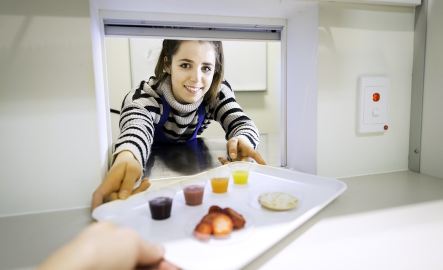
You’ll have access to some of UniSA’s state-of-the-art nutrition facilities, such as the:
You’ll also have access to a range of on-campus spaces including modern lecture theatres, collaborative teaching rooms and relaxed student lounges.
In this degree, we have a team of passionate teachers and researchers who strive to provide graduates with expert knowledge and a practical background in nutrition and food sciences. Our graduates are able to enter the workforce with expert knowledge and practical skills to begin their career in this rewarding field.

There are a number of ways to apply to study UniSA's undergraduate and postgraduate coursework degrees.
You can access our online International Application System through our How to Apply page. The International Application System is an easy and secure online application and acceptance process. You will have visibility of your application through the secure online portal with the ability to download offer documents, submit your acceptance and make a payment.
Alternatively you can submit an application through one of the University's registered Education Agents.
If you are completing an Australian year 12 qualification in Australia or overseas, or the International Baccalaureate (IB) Diploma Programme in Australia, you must apply through SATAC http://www.satac.edu.au/.
If you are applying for the UniSA Study Abroad or Study Abroad Plus program, you can submit your application online here.
Postgraduate study by research
For information on applying to do postgraduate study by research, including Masters by Research, PhDs or Doctorates, please visit http://unisa.edu.au/resdegrees.
There is no closing date for submitting your application however the admissions process takes between one and three weeks from the date that we receive your application and all required supporting documentation.
If you are completing an Australian year 12 qualification in Australia or overseas, or the International Baccalaureate (IB) Diploma Programme in Australia, you must apply through SATAC. Key dates for applications can be found here.
You may be eligible to receive credit or advanced standing for your chosen UniSA degree based on your previous studies, if they are in a related area at an equivalent or higher level. Receiving credit will reduce the number of courses you undertake within the degree, and may also reduce the overall duration of your degree.
The amount of credit you may be eligible to receive is assessed on a case-by-case basis by the Admissions team.
The best way to determine your eligibility to receive credit or advanced standing is to apply using our International Application System which can be found on our How to Apply page. You will need to supply detailed syllabus documents with your application.
UniSA welcomes the opportunity to speak with you regarding your study options. Our staff are able to talk to you about degree information, career outcomes and pathways, entry requirements, applications, and student life, so that you are able to make the best study decision for your future.
Click here to book a 1:1 appointment with one of our enquiries team.
We also have many events throughout the year in Australia and overseas where you can speak with UniSA representatives about your area of interest. View our calendar of events in your home country by selecting the 'International' filter.
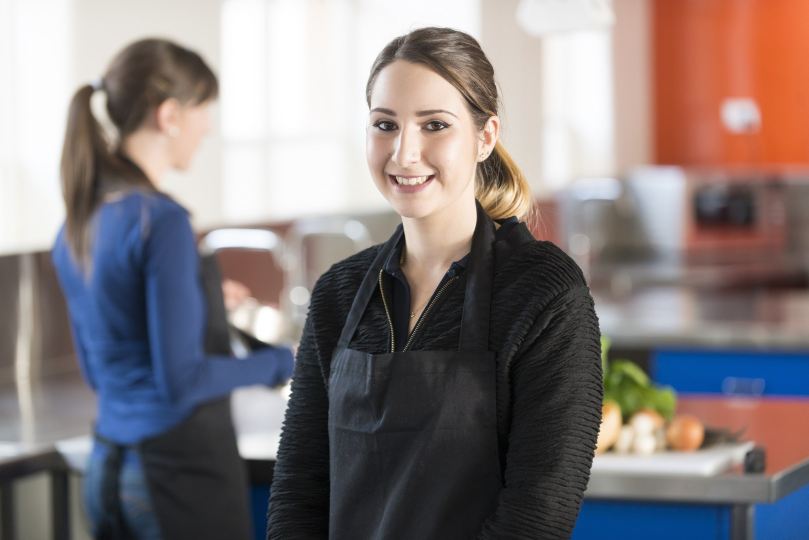

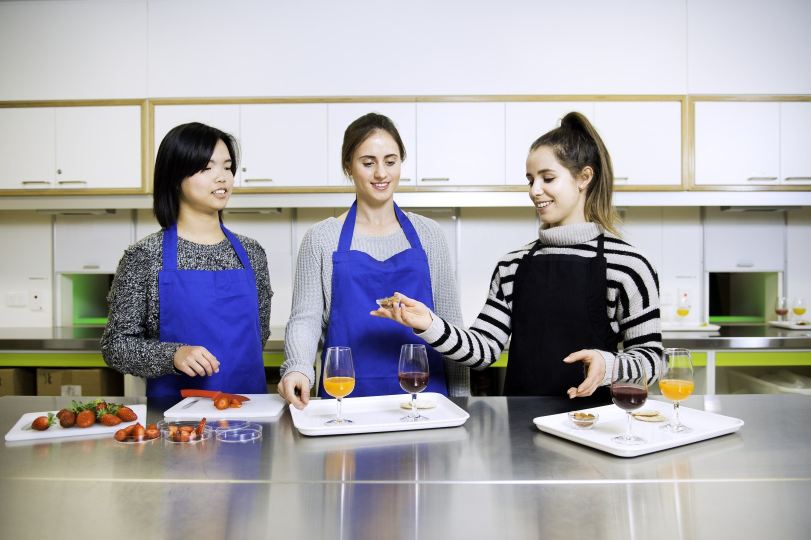
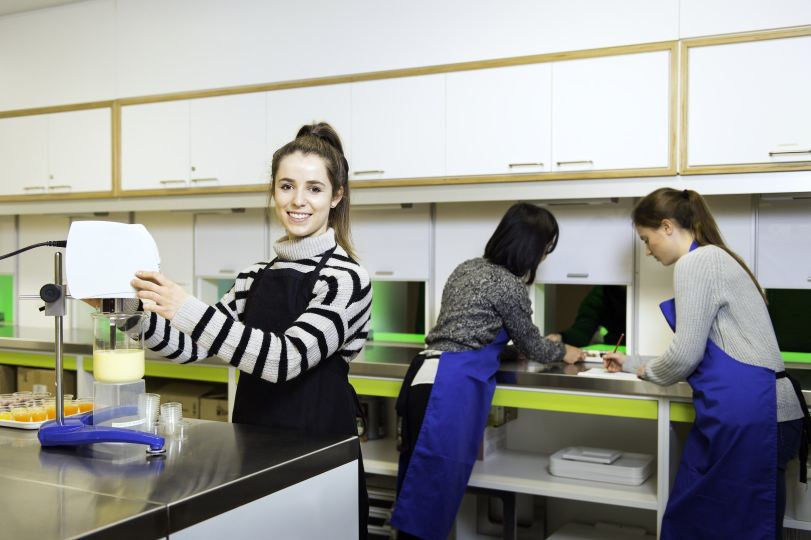
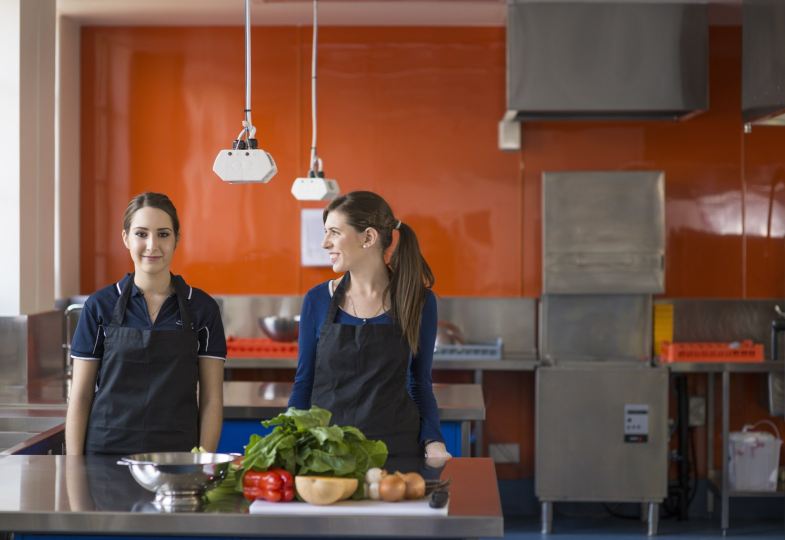
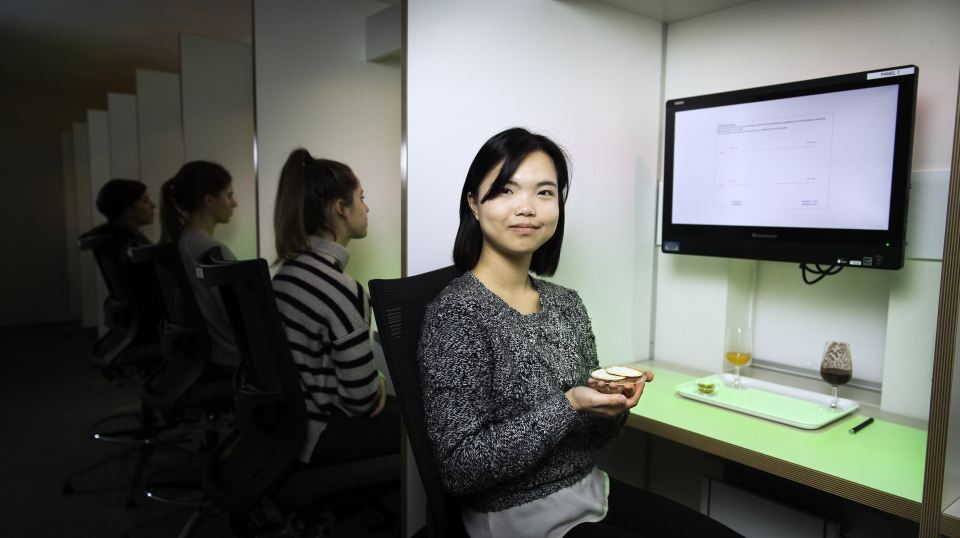
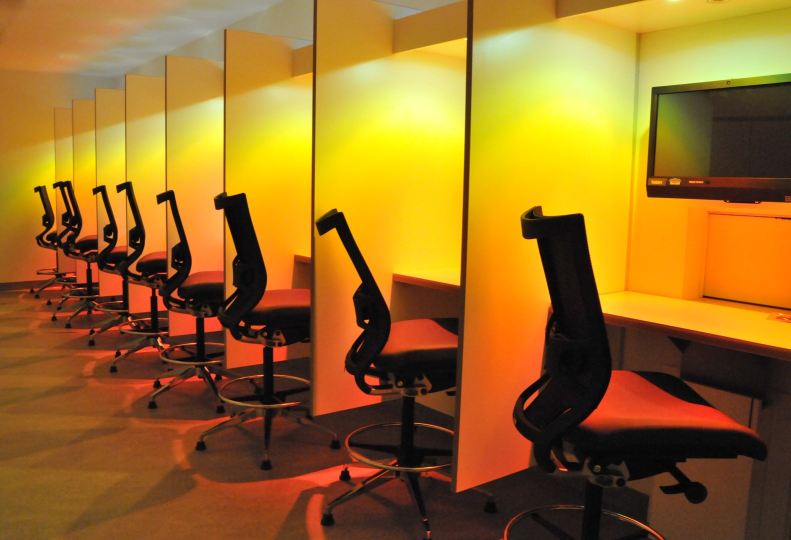
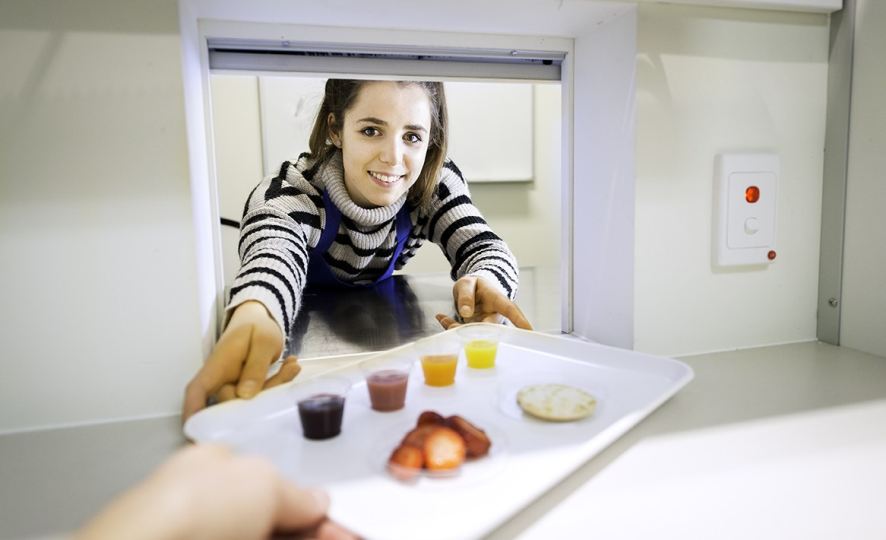
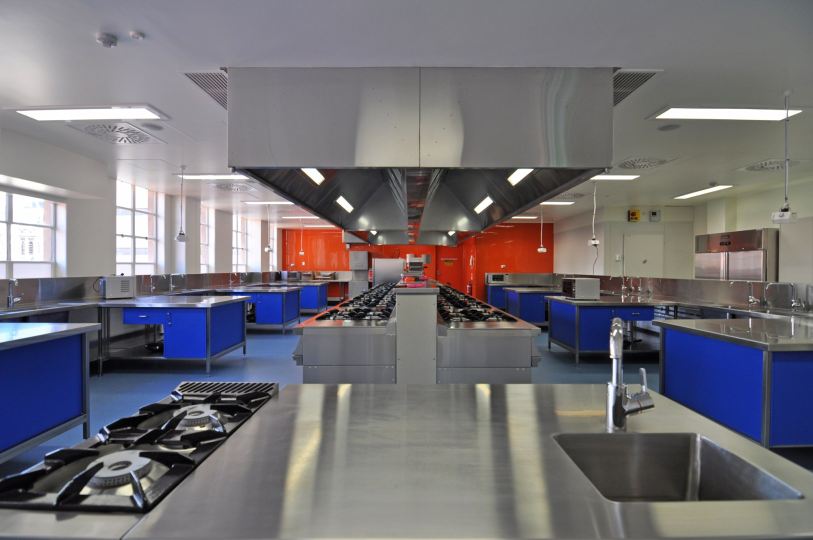
.jpg)